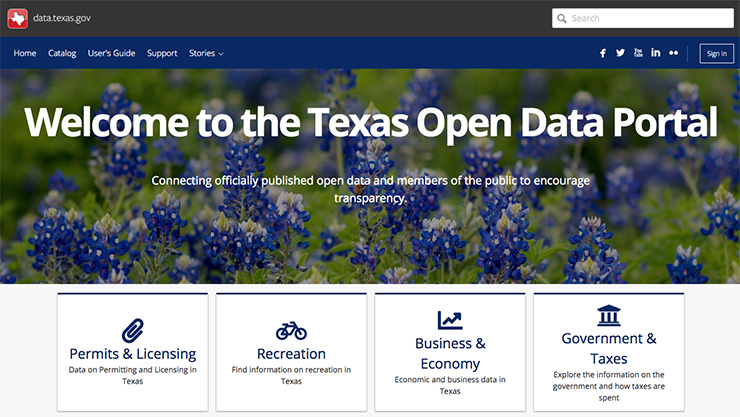Texas' Ed Kelly on the Essential Role of Data
May 20, 2019 by Melissa Crowe

Photo credit: Phil Roeder
Just a few years ago, the role of chief data officer was a new one for states.
Not so anymore.
Formalizing how state governments collect, store, and use data allows governments to operate more efficiently, discover valuable insights, and often, find cost-saving opportunities. This role is now seen as essential, not experimental.
Take the state of Texas.
 Currently, Ed Kelly serves as statewide data coordinator for the Texas Department of Information Resources — a role set to expire in 2021. But, as of April 2019, the Texas legislature has approved two bills formalizing Kelly's role as chief data officer and making open data laws even stronger.
Currently, Ed Kelly serves as statewide data coordinator for the Texas Department of Information Resources — a role set to expire in 2021. But, as of April 2019, the Texas legislature has approved two bills formalizing Kelly's role as chief data officer and making open data laws even stronger.
Since becoming the state data coordinator in 2015, Kelly has expanded Texas' data portal, helping ease roadblocks that can stand in the way of data sharing between agencies and departments. As of early 2019, 288 million datasets have been downloaded from the portal. Kelly estimated that those downloads amount to $5.3 million saved in opportunity cost by the state, according to a StateScoop article.

We spoke to Kelly about the savings offered through agency collaboration — as well as how breaking down the traditional silos makes it easier for government programs and departments to achieve their missions and work productively.
What does data governance mean to you?
Data governance is the core and formal arrangement of people, process, and technology to enable an organization to leverage data as an enterprise asset. A Data Governance structure enables an organization to address the transformational change management around how the enterprise data is managed and leveraged to support the businesses goals and objectives.
The state of Texas is a decentralized model of government. Each agency works fairly independently of each other. The Statewide Data Program works to help establish best practices of data governance and data sharing. Most agencies are just beginning the development of a data governance and enterprise information management program. Some agencies like Health and Human, Texas Education Agency, and Texas Department of Transportation have programs already in place.
How can government begin to address data quality?
With the vast amounts of data that governmental entities deal with the first step in addressing the data quality can be to conduct an inventory of their data assets. During this process one can identify, amongst other critical information, the quality of the data owned by the entity. Additionally, any legacy modernization efforts are opportunities to determine the individual data quality prior to migration to a new application or system platform.
What are the benefits of data collaboration?
Ultimately, data collaboration helps contribute to the overall success of the entire enterprise while creating greater transparency. In government today data is typically very siloed. Sharing data from one entity to another may help the receiving entity better achieve their mission, serve constituents more effectively, and provide opportunities for greater operational efficiencies.
In the area of data collaboration, the best example I have is between the Texas Department of Criminal Justice (TDCJ) and the Texas Workforce Commission (TWC). TDCJ shares incarceration and inmate data with TWC, which uses that information, along with other data sources, to identify any potential fraud in unemployment benefits. Incarcerated inmates are not allowed to file claims or receive unemployment benefits while they are in jail.